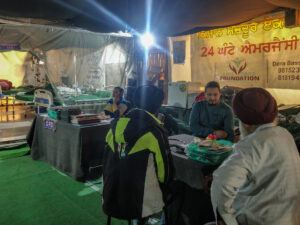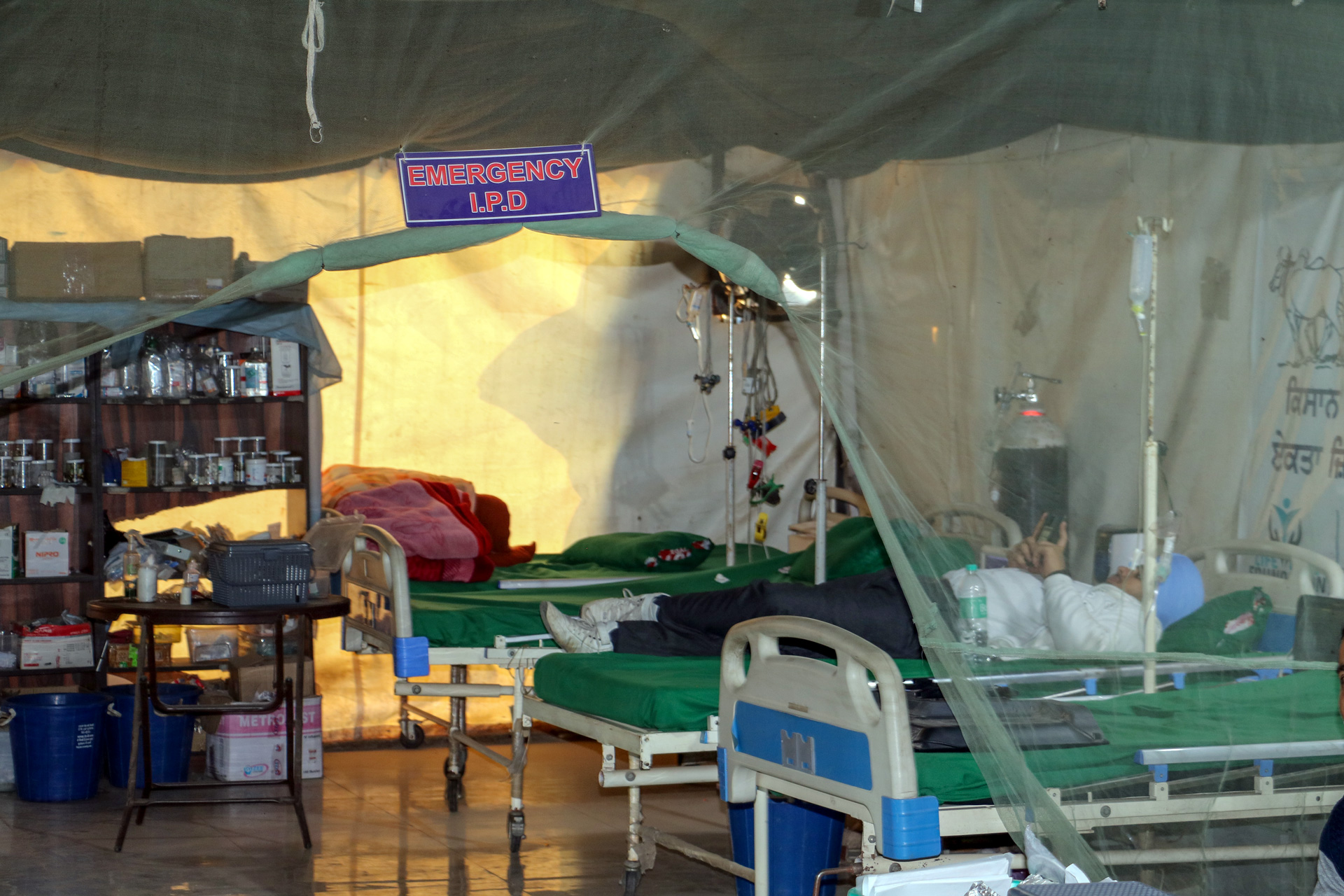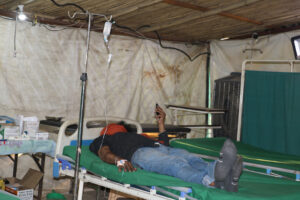Singhu Border: The protest with a human touch
On Saturday afternoon, the area around Singhu Border in New Delhi bears the look of the site of a huge village fair that has come to an end after a long time as hundreds of tents set up all over are being dismantled and the huge community kitchens that fed tens of thousands every day for every single day since November 27, 2020 are being wound up as large cooking vessels are loaded into the trolleys and trucks, along with the mattresses, fans, air coolers and even large, industrial-scale water purifiers.
Many of the thousands of farmers, who had made the National Highway 44, linking Delhi to northern India, their home for the past 13 months, along with their tractors and trolleys, have already packed up and gone home since the protest was suspended days earlier after the government acceded to all their demands.
But even as all others were packing up to leave, one structure remains undisturbed at the site, apparently in no hurry to be dismantled. This is a make-shift, but fully-equipped hospital set up at Singhu Border that has over the past 13 months catered to the medical needs of not just the farmers but also hundreds of locals living around the protest site who would frequently come here for a quick consultation, primary aid or even during emergencies as the nearest hospital for them is over 25 km away.
The hospital has been set up by Life Care Foundation, an NGO based in Dera Bassi, in Punjab. One of the doctors, Dr Avatar Singh, says that the hospital began with a small desk when the protest began and rapidly evolved into a full-fledged charity hospital, along with an 12 beds and also facilities to carry out minor operations.
The doctor says that over the year, it has treated over 6000 persons for a wide range of medical needs, ranging from cuts and injuries to more serious cases of heart attacks. The hospital also has a laboratory attached and has equipment like oxygen cylinders, oxygen concentrators and ECG machines to monitor the vital signs.
“The hospital has performed over 1400 stitches and saved countless lives. It had served 24 hours continuously without the break of a minute. We even run a pharmacy offering medicines to people round the clock. On a daily basis, we have attended to over 1000 people for all kinds of needs from medicines to a look over by a doctor. In order to sustain such heavy footfall, we each used to work for twenty-four hours in two shifts.”
The doctors say that even though there was tens of thousands of people living without any basic facilities, or proper hygiene, let alone social distancing or wearing masks, it was a miracle that none of the protest sites – be it here at Singhu Border, or the Ghazipur border or the Tikri Border – were hit by the Covid-19 pandemic that had ravaged all over the NCR region, in close proximity to the three protest sites and killed hundreds of thousands, did not hit the protest at all. “It is a miracle and thanks to Our Lord, Guru Nanak, that the pandemic did not hit the protest as it would have been a huge disaster. But by the blessings of the God, we were all spared,” says Dr Singh.
The hospital has been run on donations of the people from all over – farmers, NRIs and of course the locals living around Singhu Border and the donations keep coming even now. “A small 8-year-old kid Sejal, who put up a donation box under the name of Kisan Mazdoor Ekta Hospital had collected INR 20,000 and donated the entire amount to the hospital,” recounts Dr Singh.
With the end of the year-long protest, the hospital has reduced its number of functioning beds to ten for treating the sick. Singh says that the hospital will remain open till all the farmers pack up and leave as their could be injuries in dismantling the tents and other structures set up at the site over the year.
Dr Singh regrets the disruptions caused to the common public due to this protest. “We know that even for travelling one kilometre or lesser, people living around the site had to take detours that could take hours due to traffic jams or walk for hours and we deeply regret any inconvenience caused to them. But our message to the people is that this was a battle for you, for me, for farmers and the food we eat. The duty which the government ought to have done such as managing the traffic, creating washrooms for the people and providing free food to the homeless, the members of the protest and the community around us did it.”

The hospital continues to receive people even as other protestors go home (MIG Photos/Abhishek Bhuniya)
“We believe that all the services we have provided to the farmers and people whether be it of feeding them, providing them with the convenience of washrooms or with medical support we have done it as it was our duty, we don’t feel that we have done anyone any favour,” says Singh, as he tends to a couple of patients still being monitored in the hospital.











